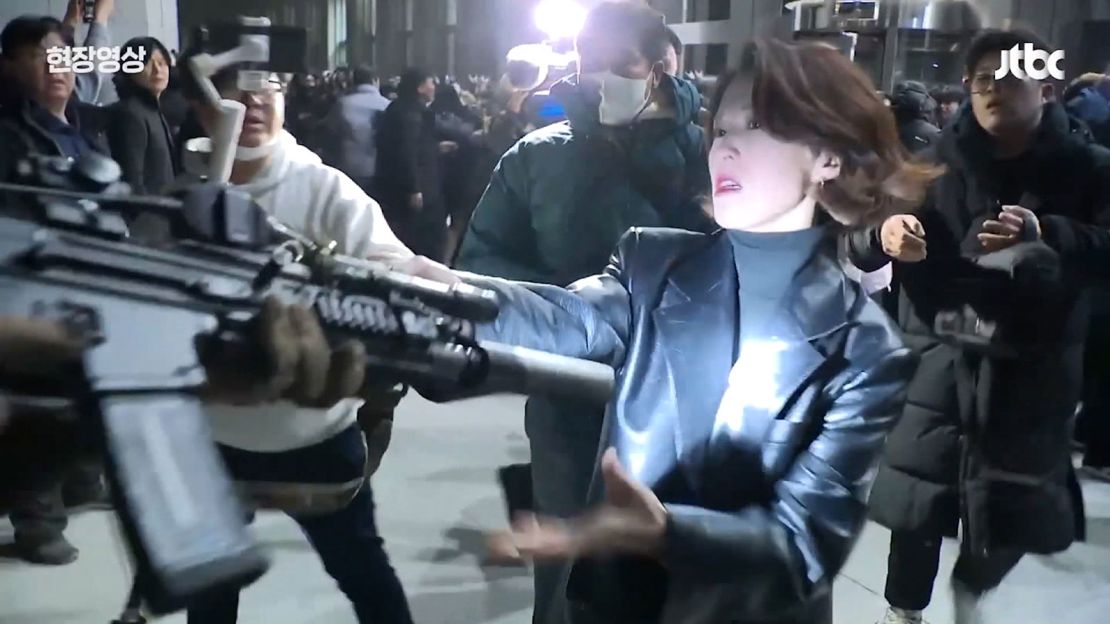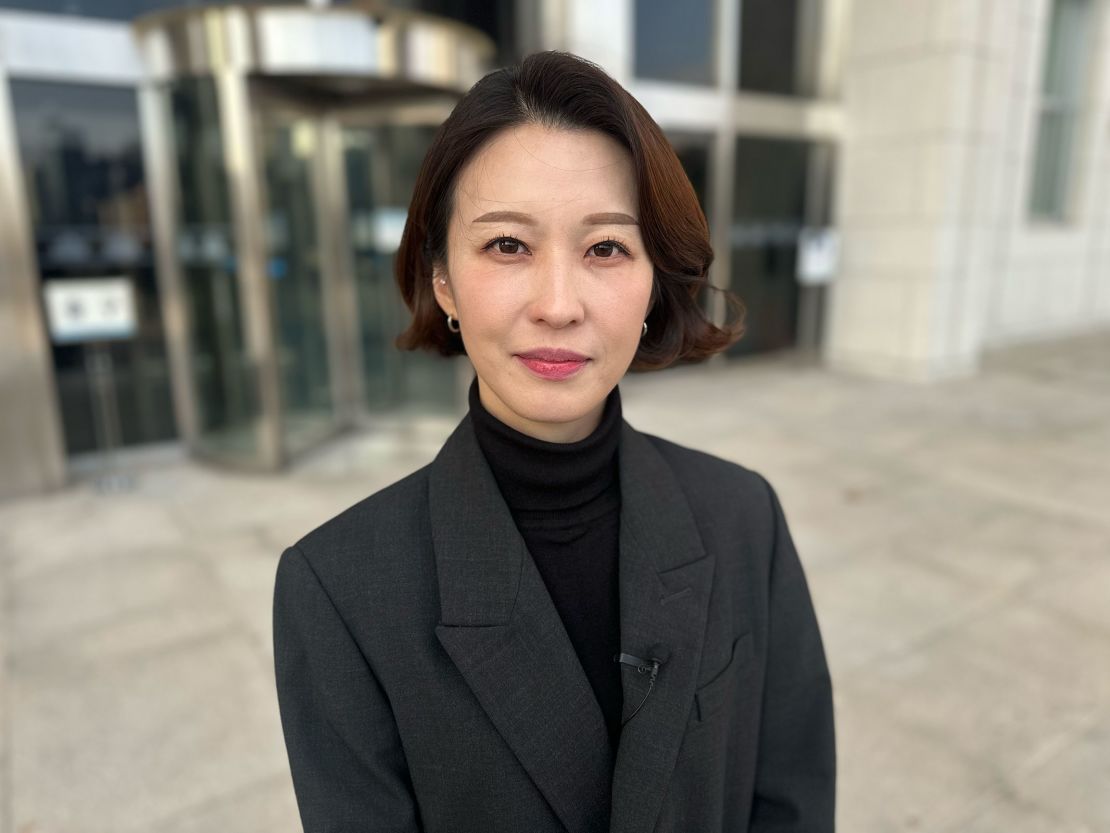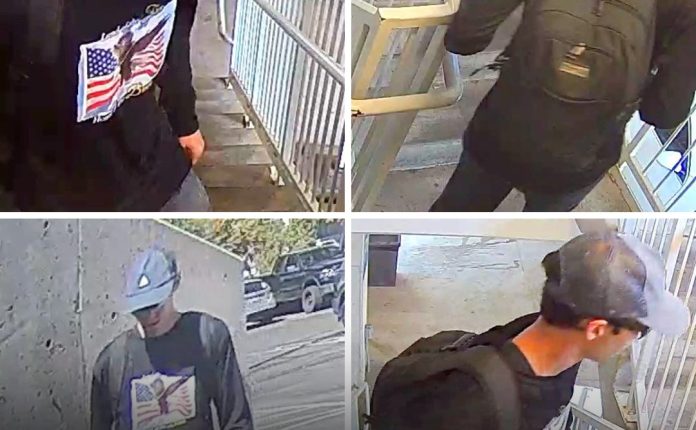South Korean politician who grabbed soldier’s gun says she was the ‘last line’ in protecting parliament during martial law

A South Korean politician who grappled with an armed soldier in a show of defiance outside the country’s National Assembly on Tuesday night said she felt like the “last line” of defense in preventing security forces from entering parliament.
One of the most defining scenes to come out of South Korea’s political chaos this week was video of An Gwi-ryeong grabbing a soldier’s gun as lawmakers faced off against troops who had blocked their way into the building.
It came hours after President Yoon Suk Yeol declared martial law in a shocking televised announcement that surprised even those within his own party and plunged the country into uncertainty.
“I asked them, ‘Aren’t you ashamed?’” An, a spokesperson for the main opposition Democratic Party, told CNN while standing outside the National Assembly building Thursday.
“Even if they were following orders, armed soldiers pointing guns at citizens in the National Assembly and interfering with lawmakers’ proceedings is undeniably illegal.”

The footage, which has since been viewed more than 7 million times on social platform X, shows security forces tussling with a crowd. An, wearing a dark jacket, can be seen grabbing a soldier’s rifle, with the two struggling for the weapon for several seconds.
At one point the soldier points his rifle at An.
“Let go of me,” she shouts at him, before bystanders separate the pair.
“During the physical confrontation, I tried to block them with my body. As they grabbed my arm and pushed, I resisted being pushed back, and I think I ended up pushing the gun away in the process,” she said.
An said she had never held a gun before and felt “scared and intimidated.”
“But at that moment, the thought of needing to stop them was much stronger,” she added.
Lawmakers had gathered in the middle of the night, preparing to vote down Yoon’s martial law order in the main assembly hall. An said party staff and protesters had piled furniture and heavy objects against the revolving entrance door to block soldiers from accessing the building.
“If the troops had entered and disrupted the vote, we wouldn’t have been able to lift martial law, and we wouldn’t be here today,” An said. “All I could think was that I must stop them. I felt like I was the last line standing in their way.”

Inside, 190 lawmakers succeeded in voting against the decree and Yoon was forced to lift martial law just six hours after announcing it, amid widespread condemnation.
South Korea has spent the last four decades shaping itself into a vibrant democracy with frequent protests and protected freedoms – a hard-won victory after a long history of bloody authoritarian rule.
An, a former anchor on South Korean news channel YTN, said that the country’s democratic success was built through “the power of its citizens” but she’s concerned that democracy there “is now crumbling and regressing.”
Lawmakers are expected to vote on an impeachment motion against Yoon as soon as Saturday, and police have launched an investigation into the president and other top officials on treason allegations.
Until then, lawmakers from the Democratic Party refuse to let the assembly hall room remain empty overnight.
They are sleeping in shifts either in the hall itself or in their offices to protect their constitutional right to vote against martial law, if Yoon decides to reinstate it.
“If President Yoon makes another declaration of martial law, the freedom of the people can be stopped,” Kang Sun-woo, a National Assembly member for the Democratic Party, told CNN from inside the assembly room, where she spent the night.
“If he makes it again, we will try to lift it as soon as possible by vote.”


